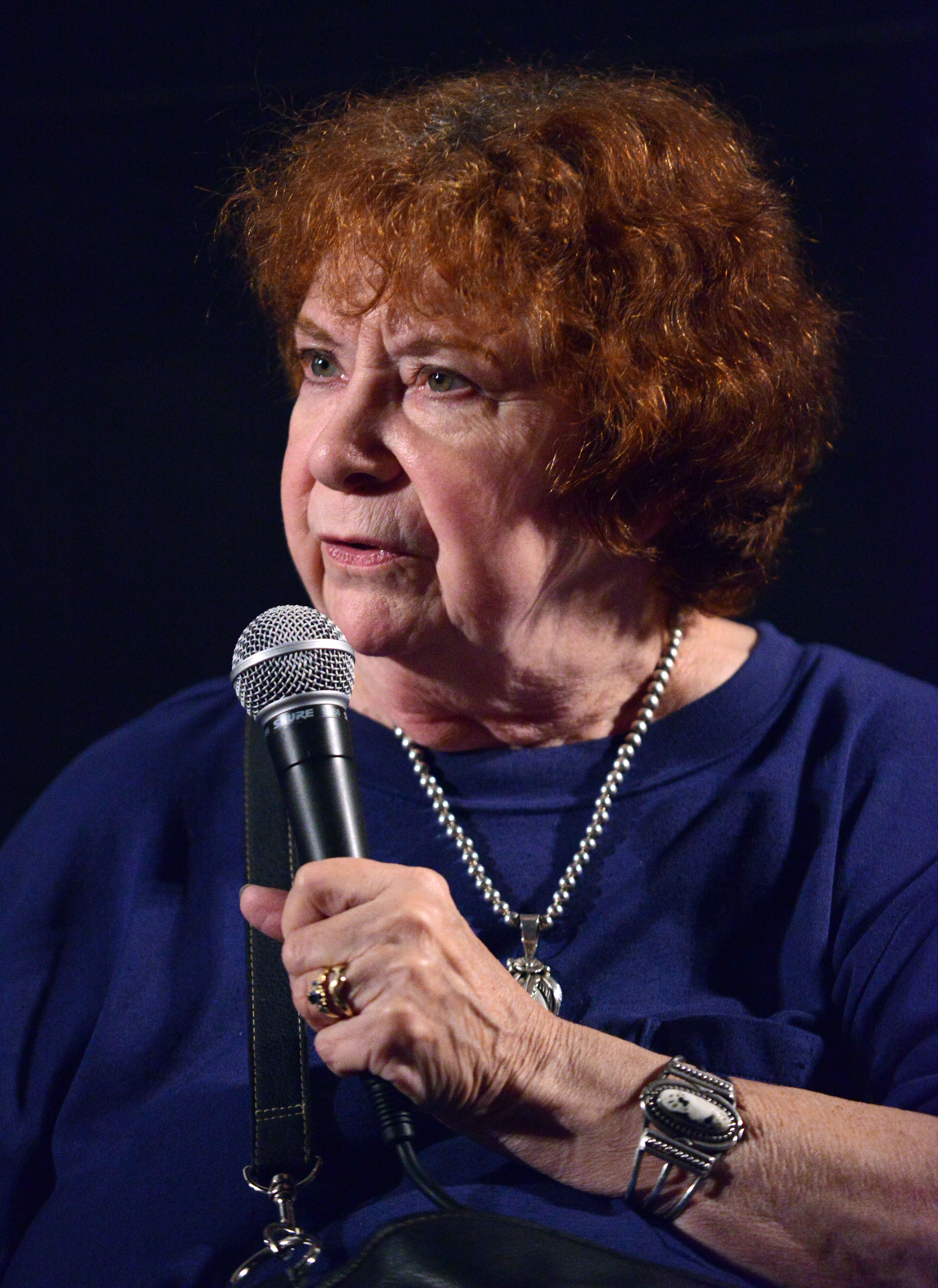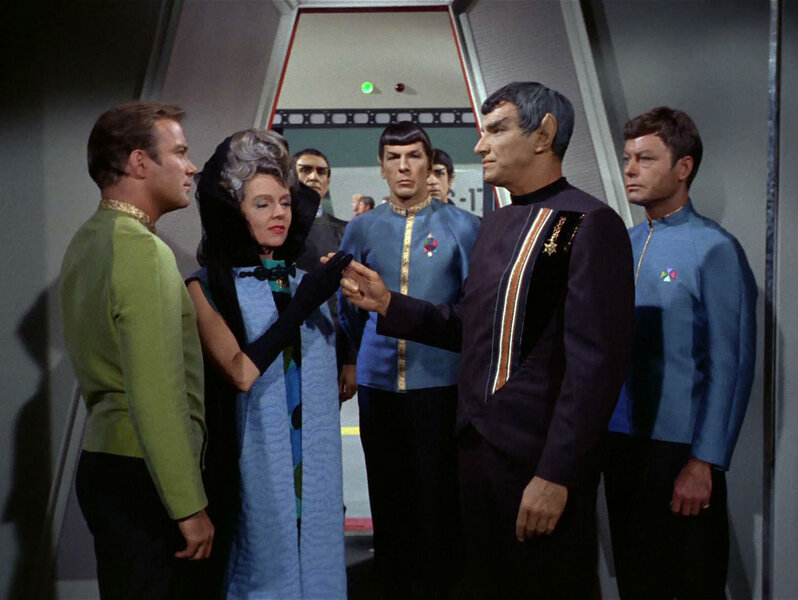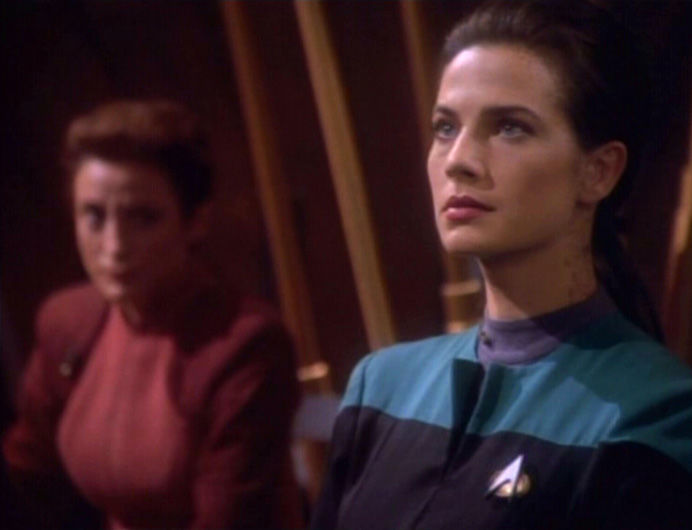Create a free profile to get unlimited access to exclusive videos, sweepstakes, and more!
Dorothy 'D.C.' Fontana gave the the original Star Trek its human heart

Writer Dorothy "D.C." Fontana died Monday at the age of 80. But her humanistic science fiction creations will live on in the form of Spock's family from the original Star Trek and The Next Generation crew in "Encounter at Farpoint." If not for Fontana, the Trek franchise would never have become the tender and relatable futuristic world we know today.
It's nearly impossible to quantify her importance to Trek and popular science fiction as a whole, but we can try.
When people speak in reverent tones about the optimism and prescient science fiction progressivism of Star Trek, original series creator Gene Roddenberry gets a lot of credit for crafting that hopeful status quo we'd all like to be beamed into. But when it came to making the characters who populated that future world believable people, the Star Trek franchise wouldn't have achieved orbit without the talents and insight of D.C Fontana.
Whether you're a longtime fan who can quote from classic '60s episodes in your sleep, or you've become a Star Trek person thanks to the thrilling adventures on Discovery, Fontana is largely responsible for creating a bedrock of real and humanistic qualities at the core of Trek. If you're someone who gets emotional thinking about Spock's family or Jean-Luc Picard's confidence, D.C. Fontana is the writer responsible for you feeling the way you do.
For the original Star Trek, Fontana carried the title of "script editor," but in reality, if it's an episode that is memorable for being emotionally complex, there's a chance Fontana had something to do with the writing, even if the teleplay doesn't have her name on it. Most famously, it was Fontana who did uncredited rewrites on Harlan Ellison's script for "City on the Edge of Forever," which helped turn a devastating time-travel premise into something that had emotional heft.
In the 2016 Star Trek oral history book The Fifty-Year Mission, Fontana made it clear that the relationships between the central characters were her primary concern, not sci-fi gimmicks: "The [episodes] that didn't go well were stories that were against objects without human relationships involved somewhere in the story."
In terms of human relationships, perhaps Fontana's biggest contribution to Star Trek canon was the episode "Journey to Babel," which is the first onscreen appearance of Spock's Vulcan father Sarek (Mark Lenard) and his human mother Amanda Grayson (Jane Wyatt). When I interviewed Fontana about her invention of Amanda earlier this year, she told me how she approached writing Amanda as an "outspoken woman."
"She wouldn't just bow down to Sarek," Fontana explained. "She [would] state her positions and her point of view—and definitely her role in Spock's upbringing — especially if Sarek had to be away on ambassador trips to other planets. As a strong woman, she would mark her position in Spock's life and fulfill it."
This legacy is clearly evident in contemporary portrayals of Amanda Grayson; both Winona Ryder in the 2009 Star Trek film and Mia Kirshner in Star Trek: Discovery embody Fontana's conception of Amanda Grayson in ways that weren't even possible in the 1960s version of Trek. And although Fontana didn't write for either Discovery or the 21st-century films, she did continue the Trek tradition of creating real and thoughtful characters well into The Next Generation and Deep Space Nine.
Along with series creator Gene Roddenberry, Fontana co-wrote the very first episode of The Next Generation, "Encounter at Farpoint." In the documentary Chaos on the Bridge, Fontana basically gives Roddenberry credit for creating the space god "Q," but everything else — including the tone of the interpersonal relationships among Crusher, Picard, Riker, Data, Tasha, Troi, Geordi, and Worf — seemingly came from her. And her Deep Space Nine script, "Dax" (co-written with Peter Allan Fields), helped establish the multifaceted nature of Jadzia Dax.
D.C. Fontana was capable of writing characters of any gender and making their relationships feel real. Even if the wobbly sets of the '60s Trek pushed the show's credibility to the limit, it was offset by Fontana's ability to project warm and intelligent human relationships into the cold vacuum of space. Kirk and Spock's epic friendship (which Fontana once told me was "just" a friendship) wouldn't exist and wouldn't matter to people if it weren't for her contributions. When you watch baby Spock struggle with his emotions in either J.J. Abrams' first Trek film or the second season of Discovery, what you're seeing is essentially a remix of what Fontana did in her brilliant time-travel script "Yesteryear," an episode of Star Trek: The Animated Series that should be required viewing for all fans.
Though Star Trek will forever be famous for weaving political allegory side by side with well-crafted science fiction, the reason the franchise continues is that the fans want to know the characters they see onscreen. Both Captain Pike and Michael Burnham refer to Starfleet as their "family" in Discovery, but the woman who created that family, and imbued it with love, was most certainly Dorothy Fontana.
When I interviewed Fontana around the 50th anniversary of Star Trek in 2016, she told me the secret to success in writing the series, and it's so simple that only a true artist would say something like this:
"We wanted to do stories that had strength, emotional content, and stories that would live," she said. "I think we succeeded."




























